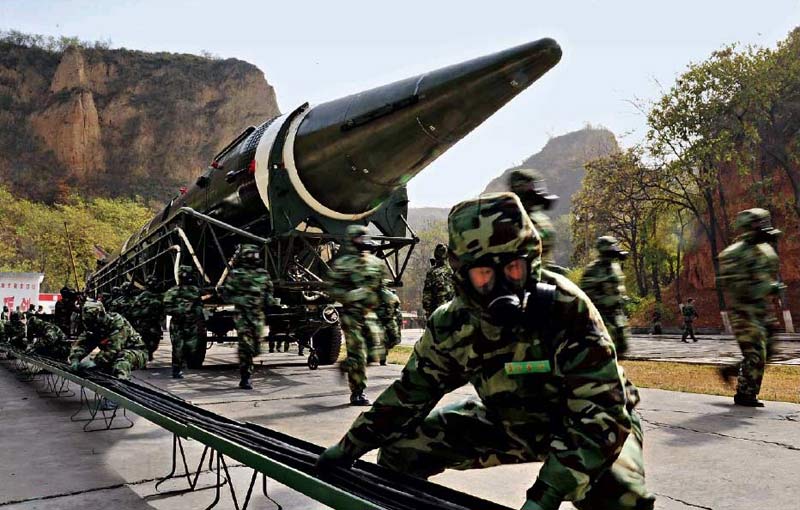In “Global Challenges for Leviathan,” Italian political philosopher Furio Cerutti considers how the existence of nuclear weapons upends the efforts of the modern state to provide meaningful security for its citizens. What is the utility of states, Cerutti asks, when the possibility of nuclear annihilation – a possibility over which many states have no control – threatens their very existence?
I’ve been thinking about Cerutti’s work in the context of the current modernization efforts taking place in several nuclear weapons states (for a comprehensive account of these efforts, read the recent Economist article “Nuclear Weapons: The Unkicked Addiction” and the Foreign Policy article “Disarm and Modernize” by John Mecklin).
As nuclear weapons are modernized, states like Russia and China have the opportunity to implement improved technologies such as precision GPS guiding and stealth capabilities. The advancement of technology in nuclear weapons can destabilize deterrence and force states to reconsider their nuclear postures and force structures relative to modernizing adversaries.
The introduction of instability to deterrence relationships necessitates new thinking on strategic stability. During the Cold War, Cerutti writes, the United States and the Soviet Union tended to defer political security to technology and sheer stockpile numbers. Automated procedures were refined alongside growing arsenals in the attempt to create an insurmountable barrier against the adversary’s will and weapons. A chilling example of these automated procedures is “dead hand,” a Soviet system that would automatically trigger an ICBM launch if a nuclear strike were detected.

Professor Furio Cerutti is Professor emeritus of Political Philosophy, Universitá degli Studi di Firenze. He now serves as an adjunct professor at the Scuola Superiore S. Anna in Pisa and Stanford University in Florence. Image courtesy of YouTube.com
Today, modernization replaces increasing stockpile numbers as the primary mode of nuclear arms competition. It is a multi-lateral competition based more on innovation than quantity. States look to precision guidance, stealth capability, and mobile second-strike capabilities to provide an edge. These advancements point to a world that is more dangerous than the post-Cold War world, both in terms of incentives for new states to proliferate and in terms of the probability that a bomb is detonated. Thérsèse Delpech, one of France’s foremost thinkers on international relations, has characterized this as a new “era of strategic piracy.” Ms. Delpech warned that the West was unprepared for the potential for surprise attacks and threats that it might be forced to confront in this new landscape.
The new era of nuclear weapons is characterized by a wide diffusion of technology, modernized weapons, horizontal proliferation, multi-lateralism, and adaptive, non-state adversaries. The foundation and implications of deterrence created during the Cold War are not well-suited to this era. As British strategist Lawrence Freedman writes, “deterrence works; until it doesn’t.”
In light of the recent media attention to nuclear weapons – both in the context of the Iran negotiations and modernization – Cerutti’s work serves as a reminder that the political impact of technological innovation and the aims of non-state or rogue state adversaries cannot be perfectly calculated in advance. Modernized nuclear weapons are an independent variable that cannot easily be bent to political designs, but instead force renewed strategic thinking. As Winston Churchill declared, “We’re out of money. Now we must think.” We’re running out of technological superiority and losing our grip on strategic stability. As students and future practitioners of nuclear security, now we must think.
Featured image courtesy of china-defense-mashup.com


